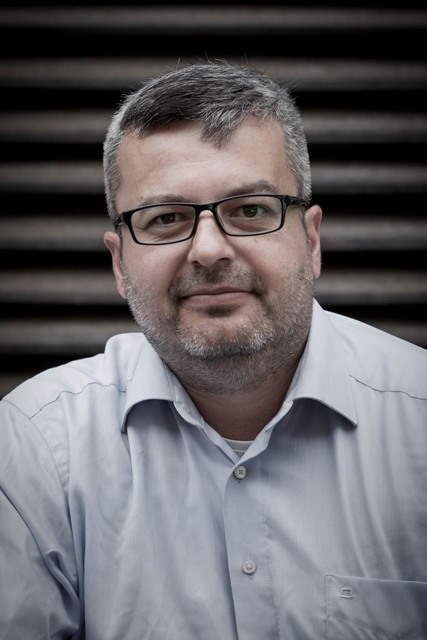“Átlátszó” means “transparent” in Hungarian. Since launching an independent nonprofit media outlet under that name, editor-in-chief Tamás Bodoky and his colleagues have worked hard to live up to it, publishing detailed funding reports on their website, he told CPJ in a recent interview.
But that hasn’t stopped pro-government institutions from accusing Átlátszó of serving foreign interests in return for grants in recent months. The public and repeated condemnation realized fears that journalists expressed last April, when right-wing Prime Minister Viktor Orbán began his unprecedented fourth consecutive term in office, that his administration would begin to chip away at the funding structure supporting the country’s independent media.
Bodoky spoke with Attila Mong, CPJ’s Europe representative, about the implications of this development for independent journalists in Hungary.(Editor’s note: Mong is a member of Átlátszó’s supervisory board but takes no part in daily operational and editorial decisions.)
CPJ messaged the office of Zoltán Kovács, the Hungarian government’s international spokesperson, for comment but received no reply.
The interview has been edited for length and clarity.
How have conditions for journalists changed in Hungary since Orbán was re-elected in April 2022?
Pro-government media outlets have launched smear campaigns against independent media outlets [in the past few months], accusing them of serving foreign interests due to their receipt of international grants. They even coined the term “dollar media” [implying that we provide coverage on demand for funders].
Now, this kind of attack has happened before. What is new is how it fits into a wider strategy to discredit independent media by pushing them to the side of the opposition parties.
Since last autumn, government [officials] and pro-government media outlets have attacked opposition parties by labeling them the “dollar left.” These parties are currently under investigation by the intelligence services for allegedly illegal foreign campaign financing, as the opposition’s candidate for prime minister in 2022 received funding from an organization based in the United States. [The candidate, Péter Márki-Zay, denies wrongdoing.]
How has Átlátszó been targeted?
Attacks against us started in December, when pro-government outlets and the state broadcaster’s news program Hirado published so-called “scoops” saying that independent media like Átlátszó are part of a wider conspiracy to attack the government and the country itself, led by George Soros, the Hungarian-born billionaire philanthropist. These accusations are totally absurd! Átlátszó is almost 60% crowdfunded and we are fully transparent about all of our foreign grants.
Things intensified in January when articles in pro-government outlets [called us] a “criminal association” receiving “Judas money,” [and said that we were] weakening the Hungarian state, involved in treason and anti-national activities, “paid foreign agents,” “thugs,” and “traitors.”
A nongovernmental organization Civil Összefogás Fórum [Hungarian for “Civil Union Forum], which regularly organizes pro-government marches and receives funding from the state lottery and the state electricity company, joined in the campaign. At a press conference, it said [the fact] that Átlátszó’s investigations are partly funded by international grants and crowdfunding [could be] a national security risk.They even called on the intelligence services to investigate, which is a new level of threat. This evokes Russia’s playbook against independent media.
If this is a coordinated effort, what do you think its goal might be?
I think it [shows authorities are preparing] to justify new measures that would make it it extremely difficult for independent outlets to receive funding from abroad, or even ban it altogether, and at the same time discourage those who support us domestically with micro-donations.
The government tried [legislation requiring organizations to disclose foreign funding] already, but had to revoke the bill after a [European Court of Justice] decision. Now they seem to be preparing the terrain for fresh action by first stigmatizing those who receive international grants.
The campaign is [going on] at the highest level, as Orbán on his Facebook page has threatened those who allegedly represent foreign interests with a new clamp-down, investigations and new laws.
